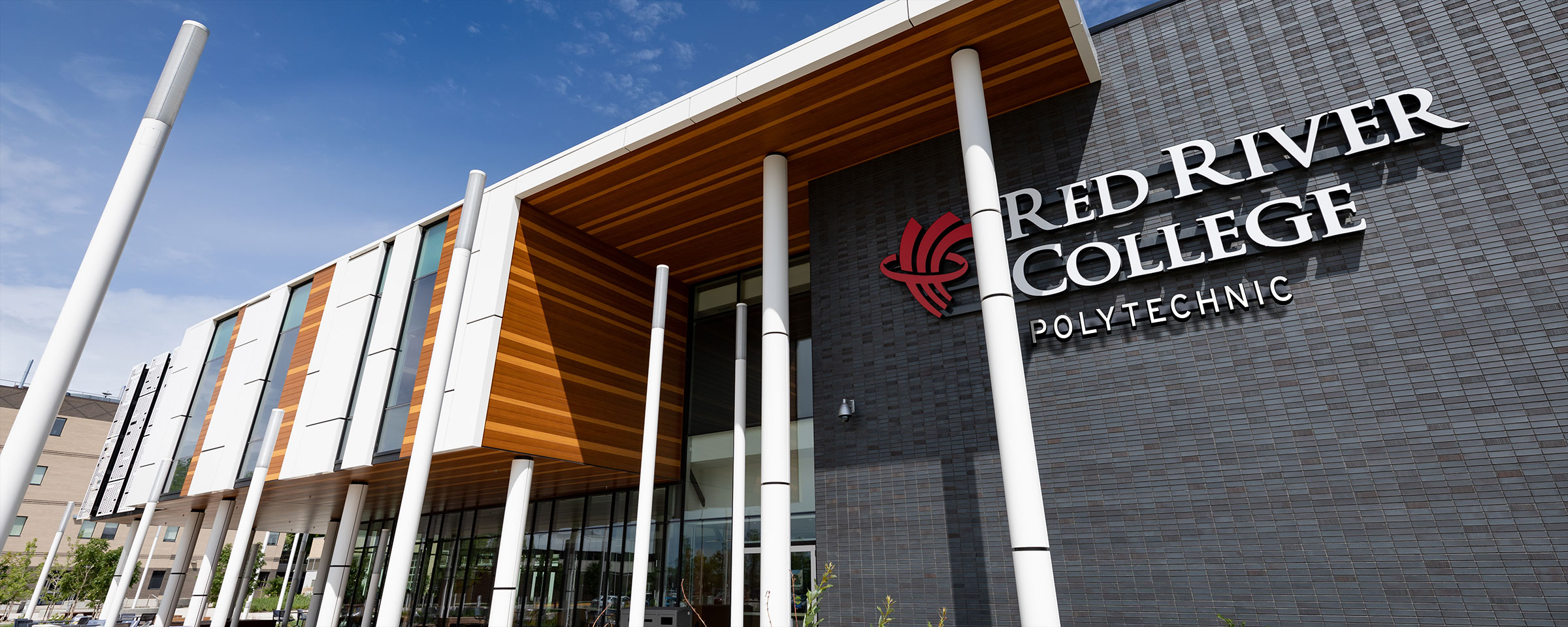RRC Ranked as a Top 10 Research College for a Second Year in a Row
For Immediate Release: 22 October 2014
WINNIPEG, MB – Red River College ranked sixth out of 50 Canadian research colleges and polytechnics, having posted $5.82 million in research income during the 2013 fiscal year. The ranking is based on Canada’s Top 50 Research Colleges List, released October 22 by Research Infosource Inc.
The College moved up in rankings from last year, where it placed seventh with $4.37 million in research income.
“Red River College has been a leader in applied research over the last decade, and we’ve seen a steady increase in research income each year,” said David Rew, Interim President & CEO, Red River College. “Applied research is an integral part of our overall strategy – it contributes in a very productive way to our communities and the experience of our students.”
Red River College is best known for its applied research capabilities related to extreme climate and cold weather technologies and applications, but several other research thrusts are rapidly emerging.
“We have built our applied research enterprise in response to community needs; especially our partners in industry.” said Ray Hoemsen, Director of Applied Research & Commercialization (AR&C) at Red River College. “With the support of both the federal and provincial governments we’ve been further developing capacity based upon our core capabilities within the Schools and their respective faculty, staff and students.”
An evolving research theme in 2013 was international collaboration. Two projects that stand out in this area are the Zero Emissions Transit Bus project with a consortium that includes Mitsubishi Heavy Industries (Japan) and the Science of Early Child Development (SECD) with multiple international partners and funders including the Aga Khan Foundation, the Lawson Foundation and others.
“In an increasingly connected world, there has never been more reason to collaborate on an international level,” said Hoemsen. “These are exciting projects that will not only benefit our local communities and students, but communities and learners the world over.”
The first prototype of the 100 per cent battery powered Zero Emissions Transit Bus has successful completed its initial field-testing phase in the coldest winter Manitoba seen in over a century. Along with Mitsubishi Heavy Industries, the partners making this project happen include Manitoba Hydro, the Province of Manitoba, and New Flyer Industries.
SECD is a dynamic online living textbook that helps educators, students and professionals better understand the growing body of evidence surrounding the importance of the first years of life in influencing lifelong individual and societal outcomes.
“Internationally, SECD materials often replace expensive and unattainable textbooks in health and education sectors,” says Janet Jamieson, research chair with Red River College’s School of Health Sciences and Community Services and leader of the SECD project.
Hoemsen is excited about the year ahead. “We are looking to expand several applied research initiatives across the College, especially in the areas of social innovation, culinary arts, and digital technology.”
– 30 –
For more information contact:
Conor Lloyd, Communications Officer
(204)795-2864, clloyd@rrc.ca
Click here to download a copy of this release.
